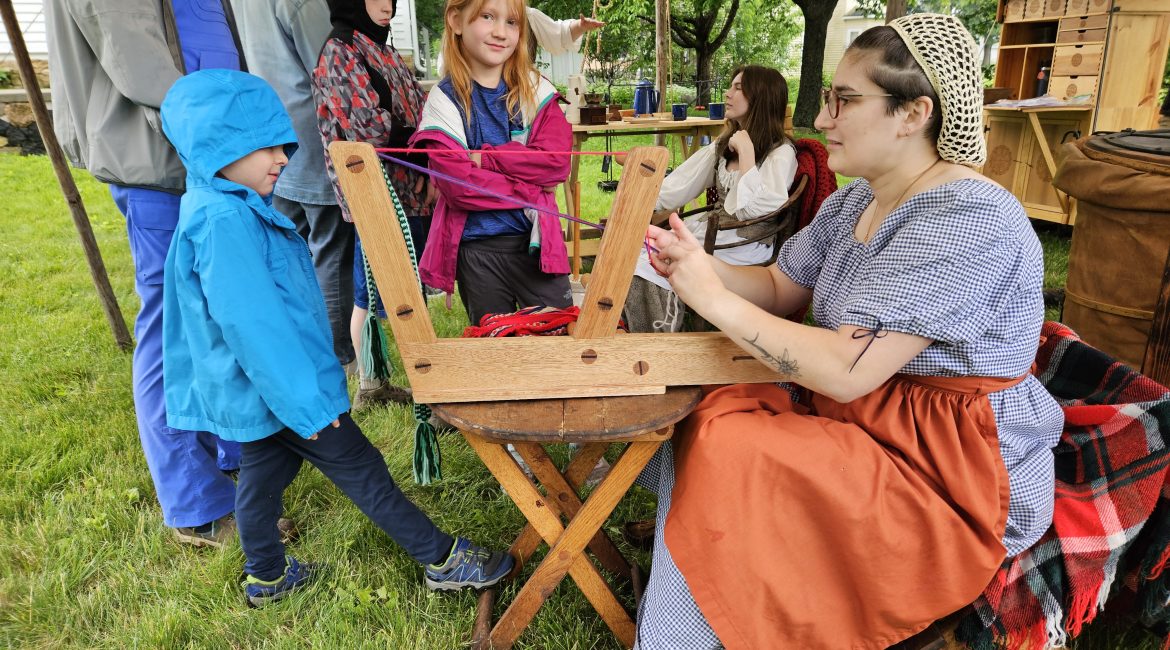By Chris Spangler
A local family turned back time Saturday to celebrate life in Fort Atkinson nearly 180 years ago.
Beneath a tent outside the Hoard Historical Museum’s Foster House, members of the Hamele family — Nick and Christine; their daughter, Rachel Hamele, and their niece, Grae Szabo, all of Fort Atkinson — demonstrated blacksmithing, weaving on an inkle loom and food preparation as they would have done by the community’s early settlers.
Inside, Nick’s parents, Gene and Peg Hamele of Fort Atkinson, led tours of the white frame house built for Dwight and Almira Foster, the community’s first “Yankee” settlers, in 1841.
Rain certainly did not deter visitors, among them two young college friends on a daytrip from Harvard, Ill., to Madison.
Anna LaRocco Masi of Vernon Hills, Ill., and Anna Du of Fredericksburg, Va., became friends while at George Washington University in Washington D.C. Both graduated in 2018.
They then joined the Peace Corps, with Masi volunteering in Morocco and Du going to Georgia in Eastern Europe.
On Saturday, the women and Masi’s dog, Helsinki, whom she brought home from Morocco, stopped at Harvard Milk Days on a lark. Heading toward Madison to reunite with other Peace Corps volunteers who had been in Georgia, they came upon Fort Atkinson and were intrigued by the Dairy Shrine.
Masi and Du said they were having a wonderful time learning about Wisconsin’s rich dairy history, as well as what life was like back in the 19th century.
“It is great to see young people out here enjoying themselves and learning about history, and not inside on their phones,” Masi said, looking around guests viewing the butter-churning, flax-combing and blacksmithing demonstrations. “These are dying arts.”
Peonies presentation
Also taking place Saturday in the museum was a presentation by Michelle Ovans of Ovans Peony Farm in Beaver Dam, who serves as president of the Wisconsin Peony Society.
Her garden talk focused on growing various types of peonies and creation of the Wisconsin Arts and Peony Festival that takes place June 7-9 in Beaver Dam.
Sitting right in the front row was Roger F. Anderson of Fort Atkinson, known internationally as the world’s leading intersectional peony breeder.
He and his late wife, Sandra, marketed his 50 named peony varieties from their nursery, Callies Beaux Jardins, from 1978-2004.
The museum grounds are home to the Roger F. and Sandra L. Anderson Peony Garden, established in 2010 as the largest public collection of intersectional peonies in North America. It boasts 58 peonies developed by Anderson, including 18 named intersectional varieties and two tree peonies.
The Anderson Intersectional Peony Garden has started to bloom and can be enjoyed this week behind the museum on the southwest corner of South Fourth Street East and Foster Street.
Pictures from Saturday’s events follow.
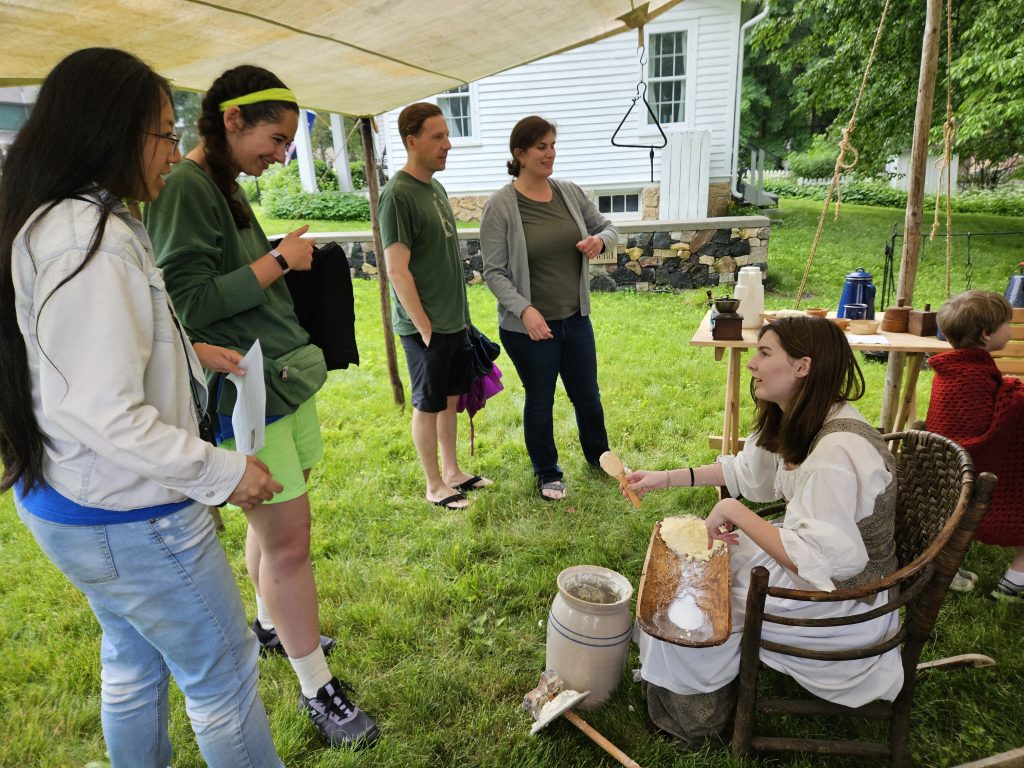
Grae Szabo, seated, churns butter. She next explains to museum visitors steps within the process, including that the buttermilk must be squeezed out so the butter will not become rancid.
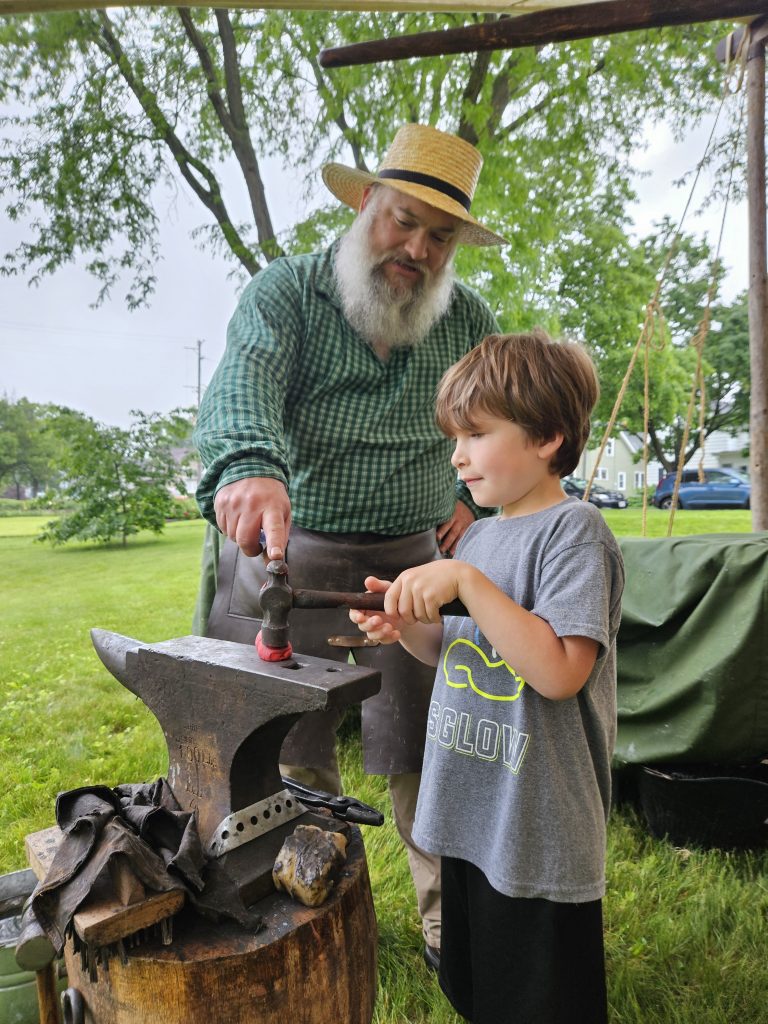
Blacksmith Nick Hamele, using children’s molding clay as a medium, teaches Evan Bertelsen, 6, how to shape a spoon on the anvil.
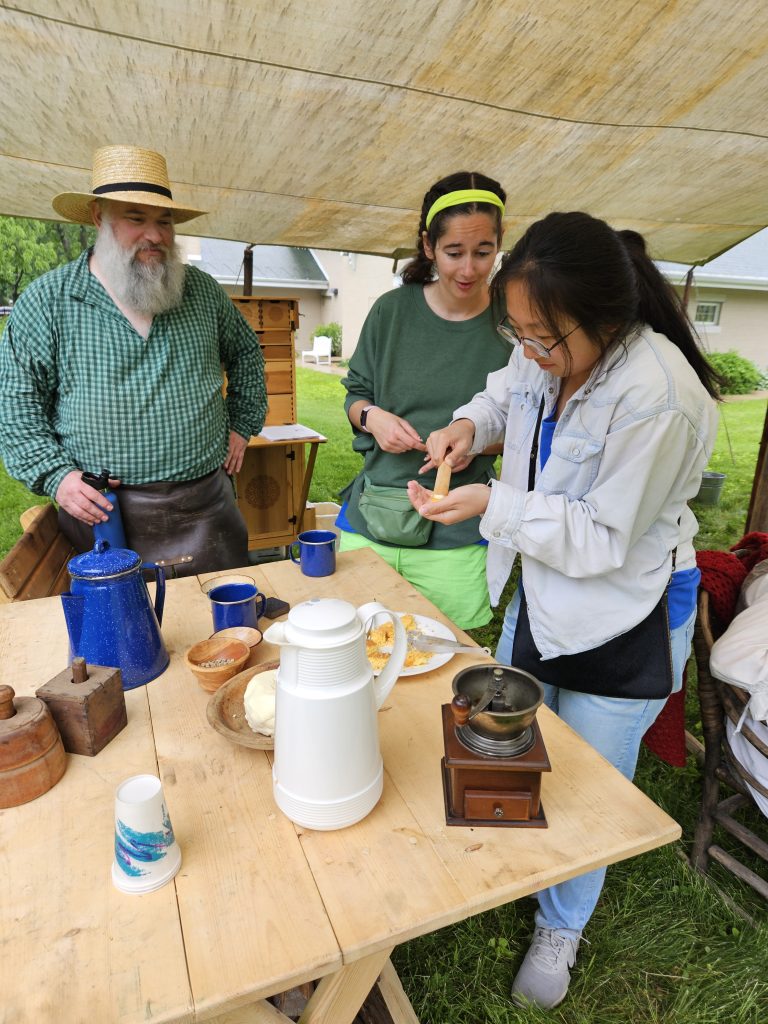
Nick Hamele, from left, watches as museum visitors and friends Anna LaRocco Masi of Vernon Hills, Ill., and Anna Du of Fredericksburg, Va., learn about 19th-century food preparation. The demonstration was one of several made available to the public Saturday at the Hoard Historical Museum.
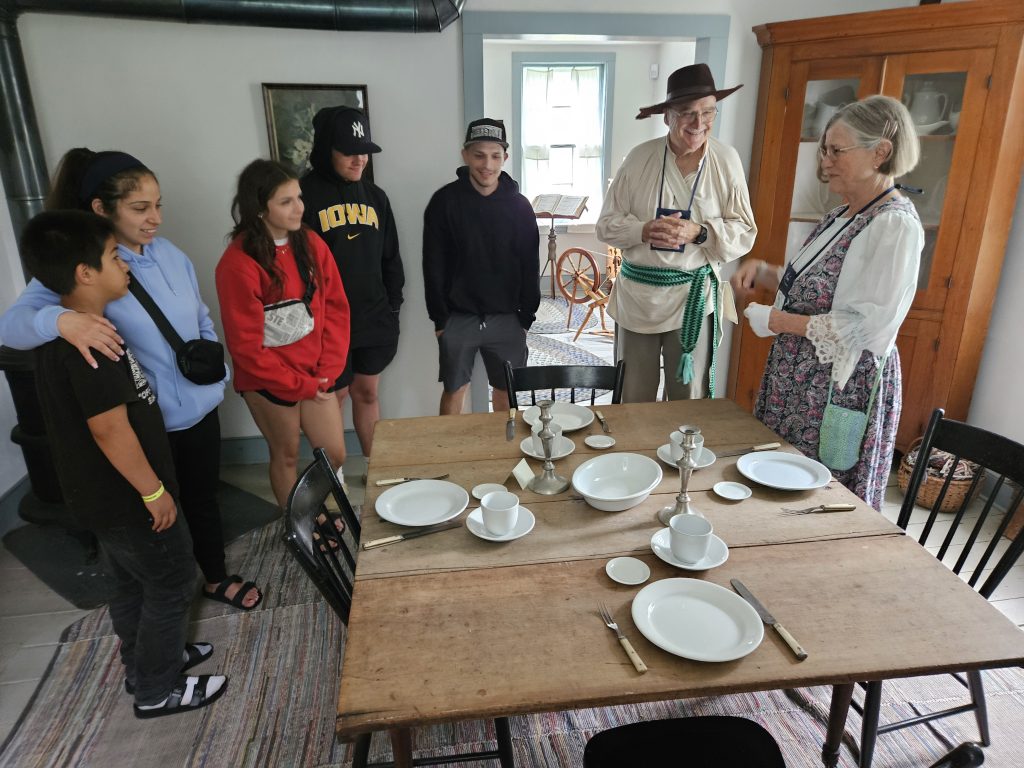
Fort Atkinson residents Gene and Peg Hamele, both in costume, at right, lead a tour of the Foster House on the museum grounds. The white frame house was built for Dwight and Almira Foster, the community’s first “Yankee” settlers, in 1841.
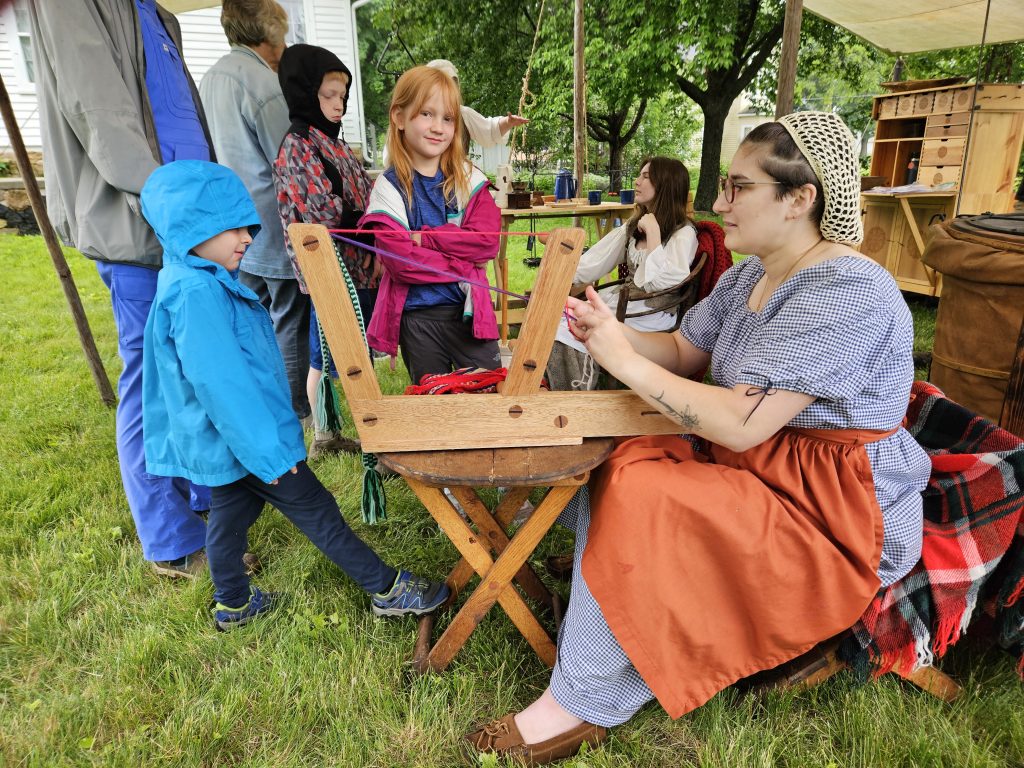
Fort Atkinson resident Rachel Hamele demonstrates weaving on an inkle loom. During the demonstration, she created long, thin strips of fabric for sashes, belts and bracelets, among other uses.
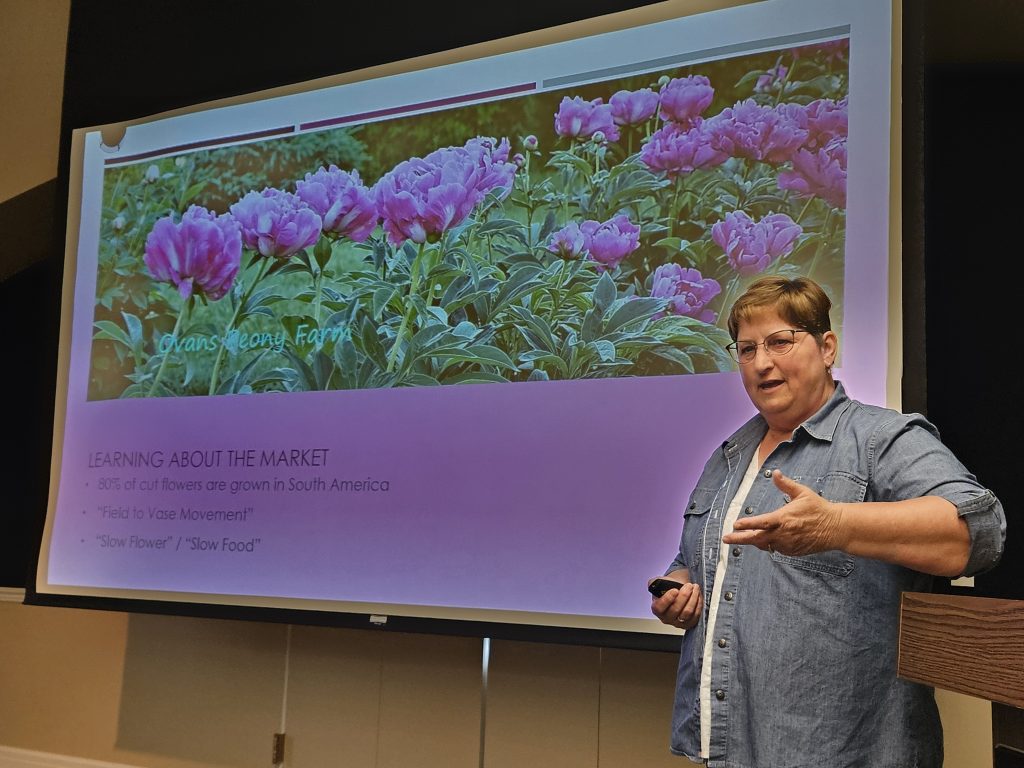
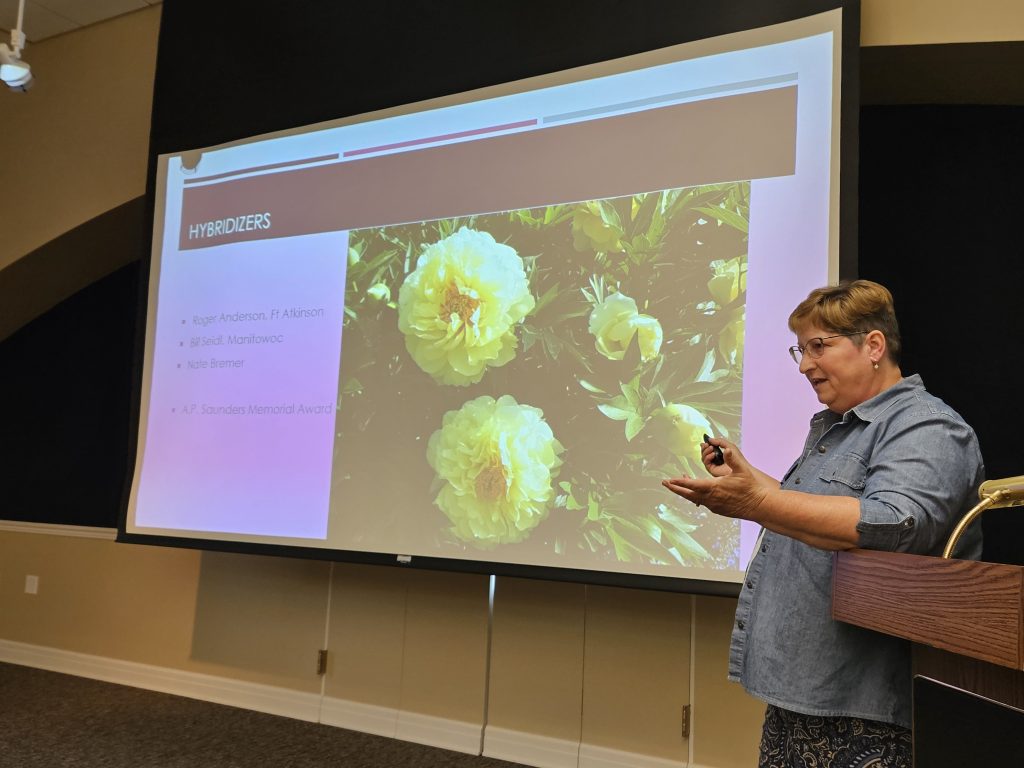
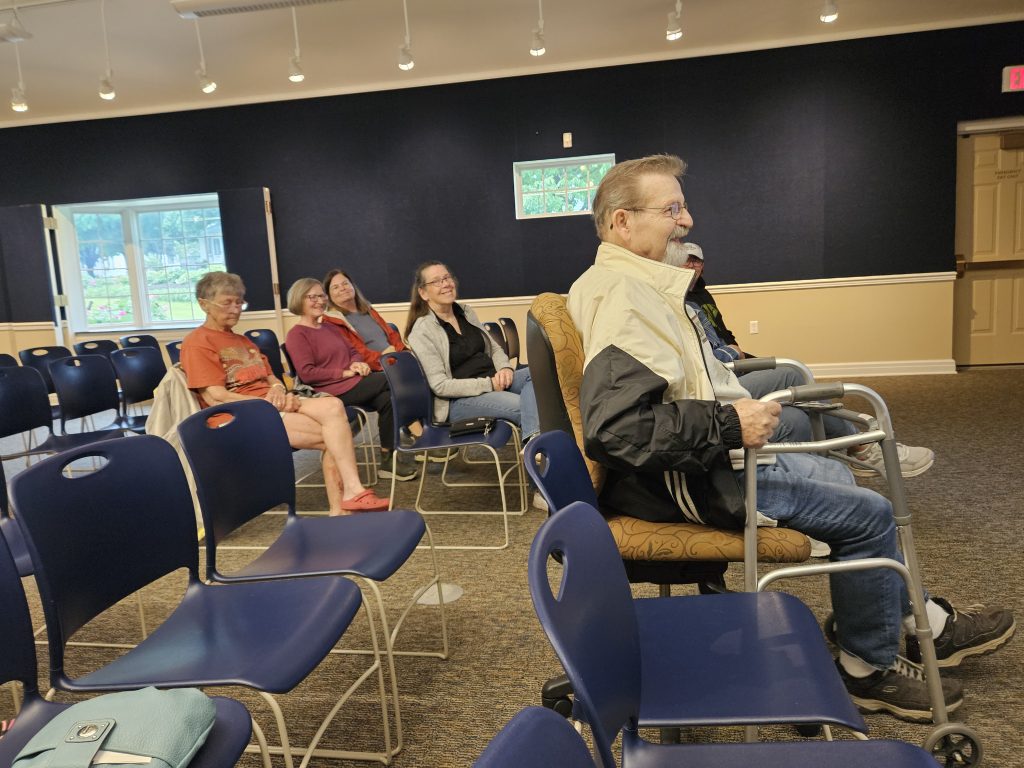
Three photos above: at top, presenting a garden talk at the museum is Michelle Ovans of Ovans Peony Farm in Beaver Dam, who serves as president of the Wisconsin Peony Society. Among the audience members in the front row, above, is Fort Atkinson resident Roger F. Anderson, who is known internationally as the world’s leading intersectional peony breeder. The yellow peony shared within the demonstration, pictured center, as a “hybridizer” is Anderson’s acclaimed Bartzella intersectional peony.
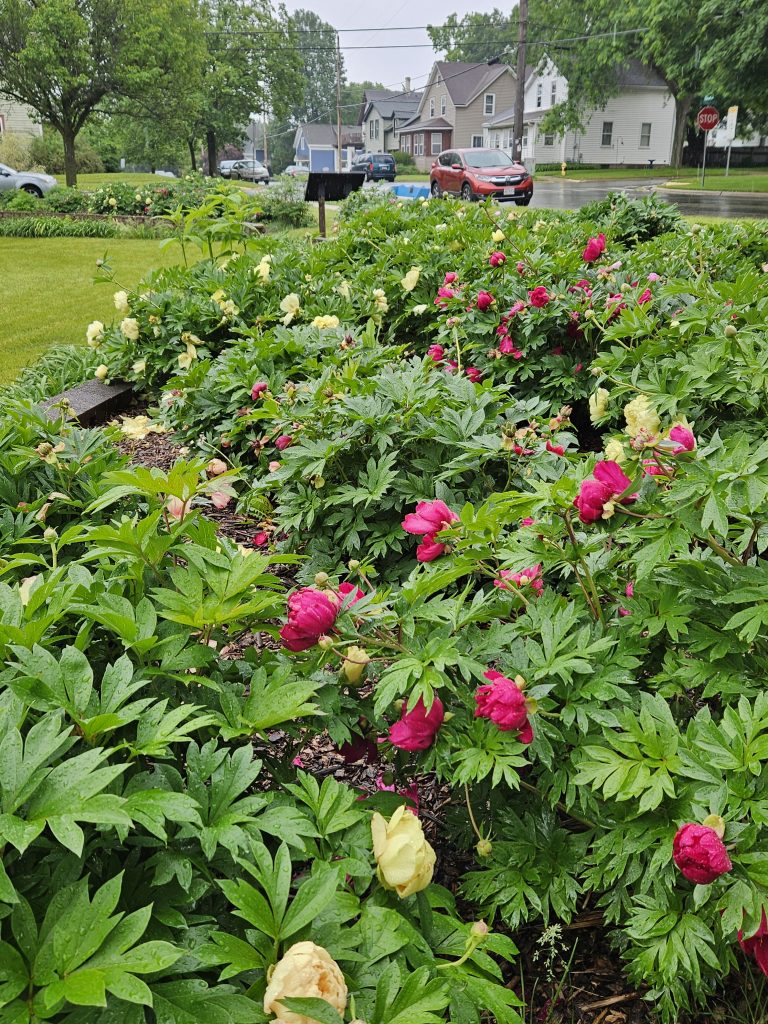
The Roger F. and Sandra L. Anderson Peony Garden, on the grounds of the Hoard Historical Museum, was established in 2010 as the largest public collection of intersectional peonies in North America. They are in bloom, beckoning visitors to view the various plants over the next three weeks.
Chris Spangler photos.
This post has already been read 1605 times!
